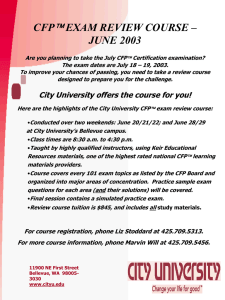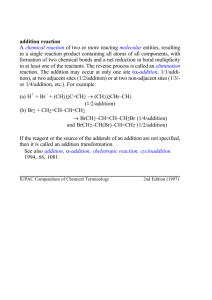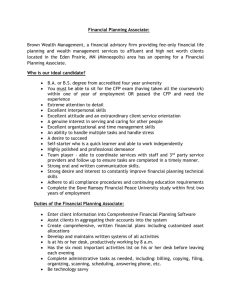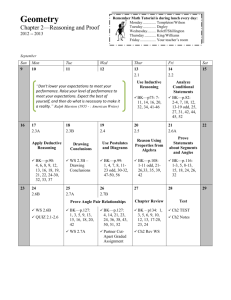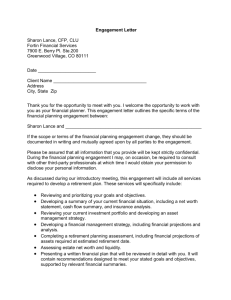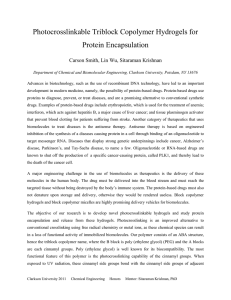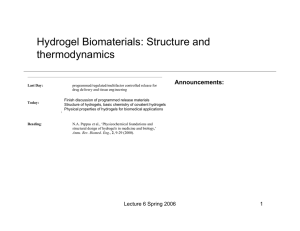Advancing Cell-free Protein Production for Therapeutic Production in the Real World ABSTRACT
advertisement
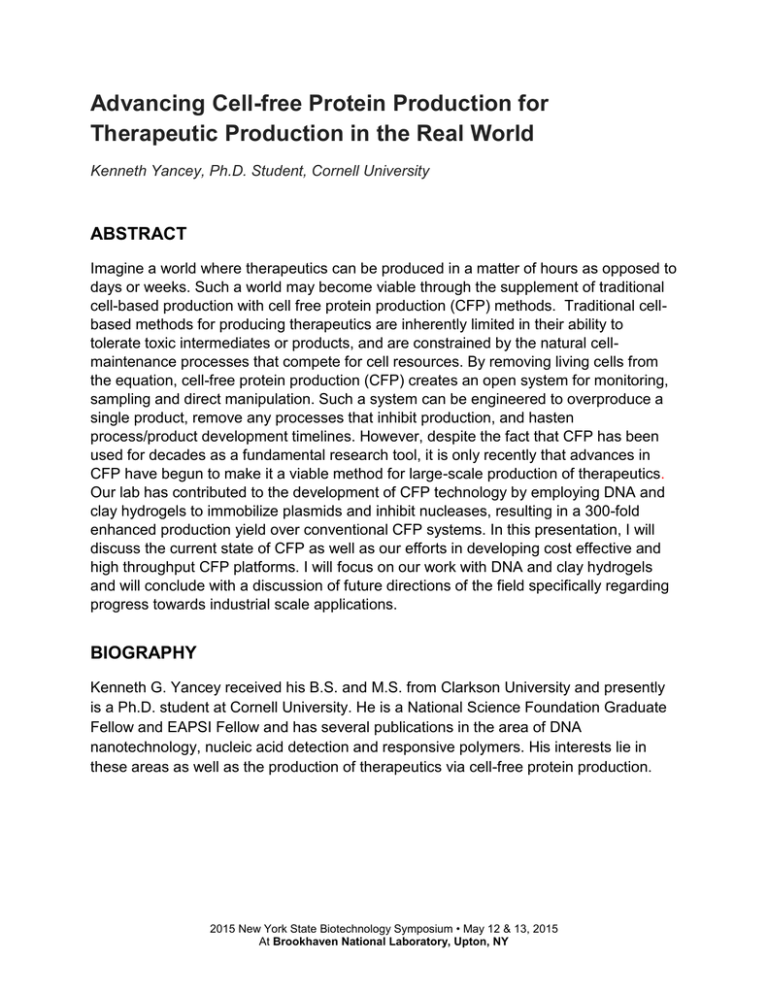
Advancing Cell-free Protein Production for Therapeutic Production in the Real World Kenneth Yancey, Ph.D. Student, Cornell University ABSTRACT Imagine a world where therapeutics can be produced in a matter of hours as opposed to days or weeks. Such a world may become viable through the supplement of traditional cell-based production with cell free protein production (CFP) methods. Traditional cellbased methods for producing therapeutics are inherently limited in their ability to tolerate toxic intermediates or products, and are constrained by the natural cellmaintenance processes that compete for cell resources. By removing living cells from the equation, cell-free protein production (CFP) creates an open system for monitoring, sampling and direct manipulation. Such a system can be engineered to overproduce a single product, remove any processes that inhibit production, and hasten process/product development timelines. However, despite the fact that CFP has been used for decades as a fundamental research tool, it is only recently that advances in CFP have begun to make it a viable method for large-scale production of therapeutics. Our lab has contributed to the development of CFP technology by employing DNA and clay hydrogels to immobilize plasmids and inhibit nucleases, resulting in a 300-fold enhanced production yield over conventional CFP systems. In this presentation, I will discuss the current state of CFP as well as our efforts in developing cost effective and high throughput CFP platforms. I will focus on our work with DNA and clay hydrogels and will conclude with a discussion of future directions of the field specifically regarding progress towards industrial scale applications. BIOGRAPHY Kenneth G. Yancey received his B.S. and M.S. from Clarkson University and presently is a Ph.D. student at Cornell University. He is a National Science Foundation Graduate Fellow and EAPSI Fellow and has several publications in the area of DNA nanotechnology, nucleic acid detection and responsive polymers. His interests lie in these areas as well as the production of therapeutics via cell-free protein production. 2015 New York State Biotechnology Symposium • May 12 & 13, 2015 At Brookhaven National Laboratory, Upton, NY
